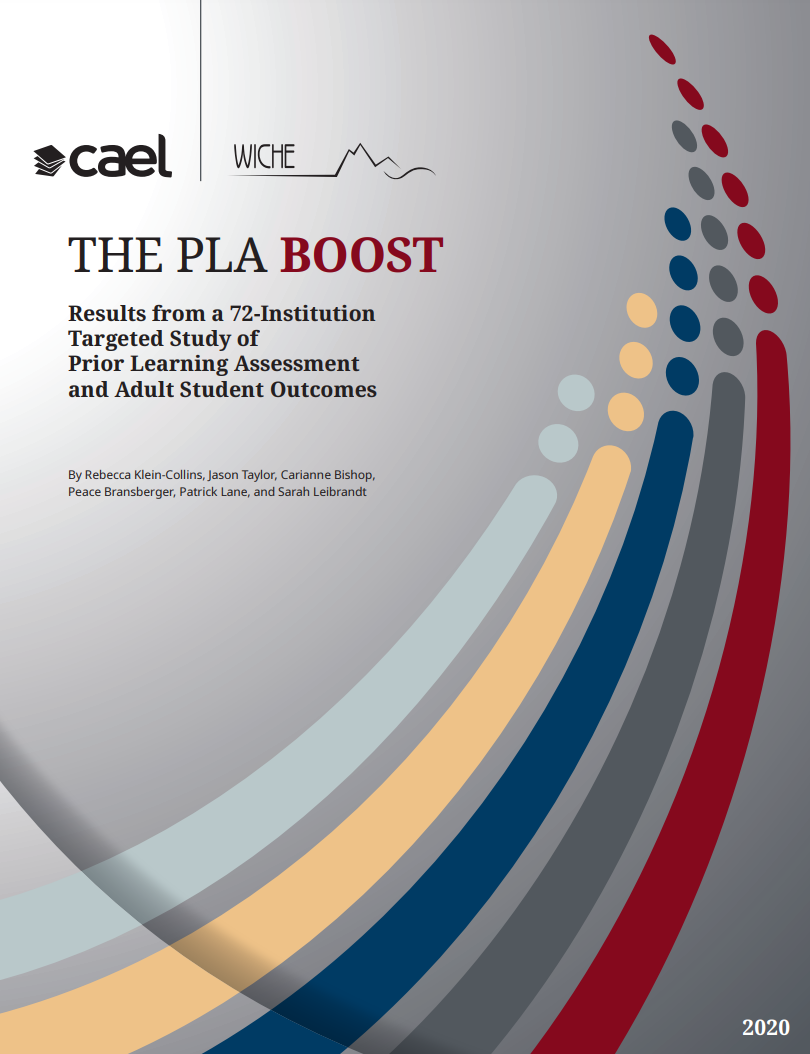The PLA Boost: Results from a 72-Institution Targeted Study of Prior Learning Assessment and Adult Student Outcomes
Author(s): Rebecca Klein-Collins, Jason L. Taylor, Carianne Bishop, Peace Bransberger, Patrick Lane, Sarah Leibrandt
Publisher: Western Interstate Commission for Higher Education (WICHE), Council for Adult and Experiential Learning (CAEL)
Year: 2020
Description
Postsecondary institutions that have focused on adult learners have developed a number of strategies and programs to help put learning and credentials within reach. One important strategy is ensuring that adults are not wasting time and money by taking courses in subjects that they have already learned. Adult students—whether just starting college or returning after stopping or dropping out—often have significant college-level learning they have acquired outside of academia. Postsecondary institutions have the option to evaluate that learning for the purpose of awarding credit or otherwise recognizing the learning so that it can count toward a postsecondary degree or other credential. The methods that colleges use to evaluate this learning are typically referred to with terms like prior learning assessment (PLA), credit for prior learning (CPL), or recognition of learning. (See box for specific PLA methods used by postsecondary institutions.) An important question is whether earning credit through PLA makes a difference for the adult student in terms of their ability to complete a postsecondary credential.

